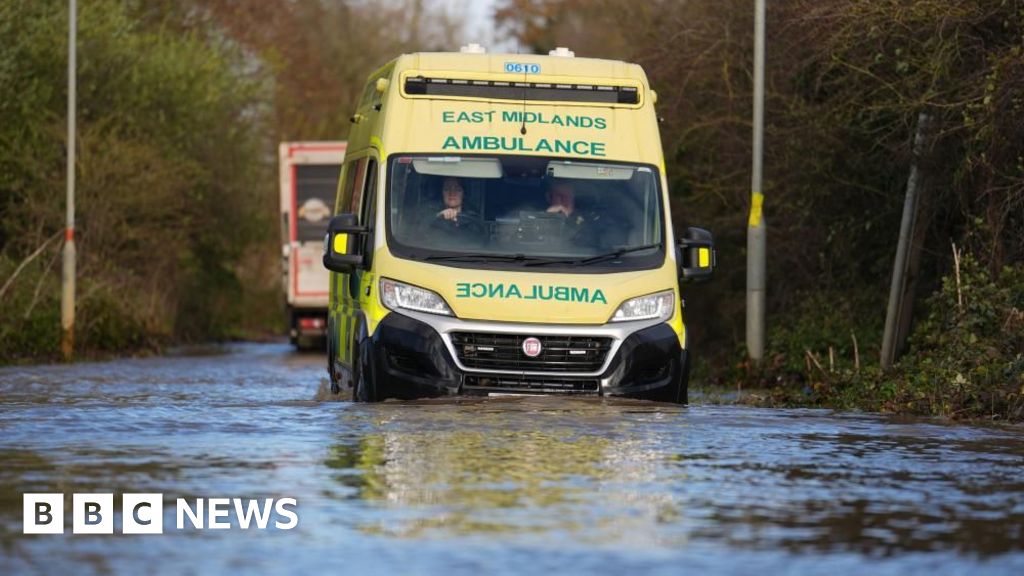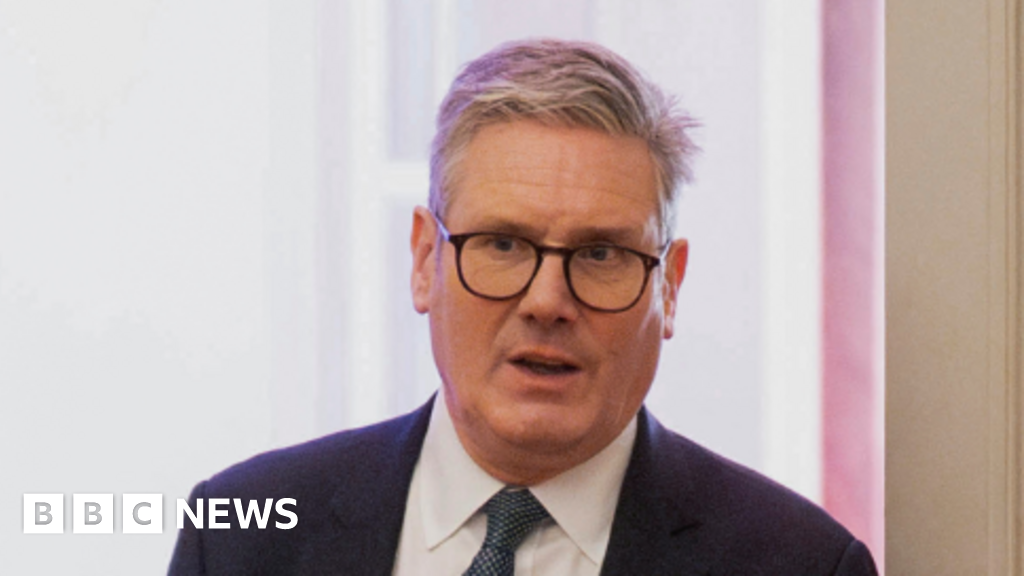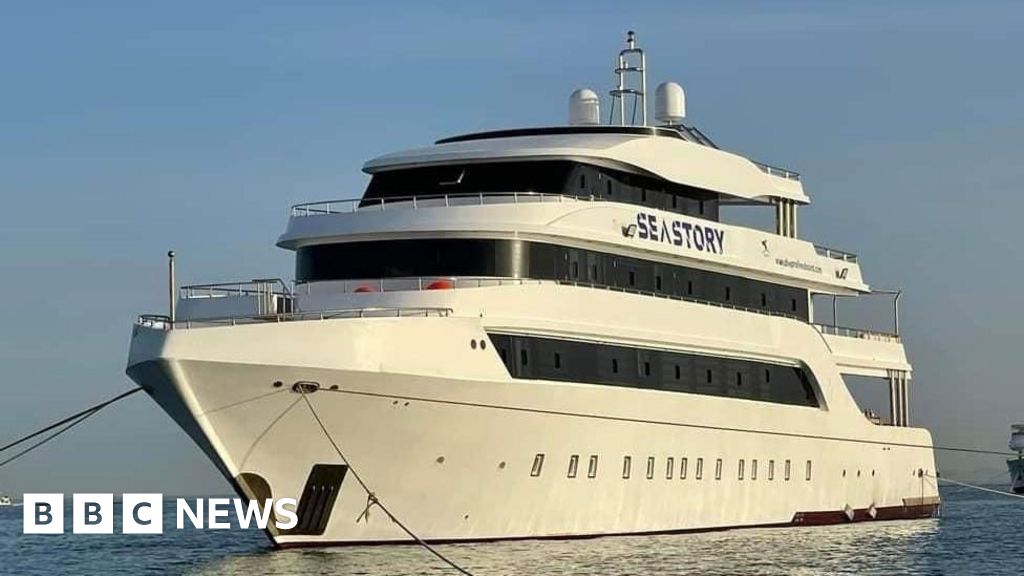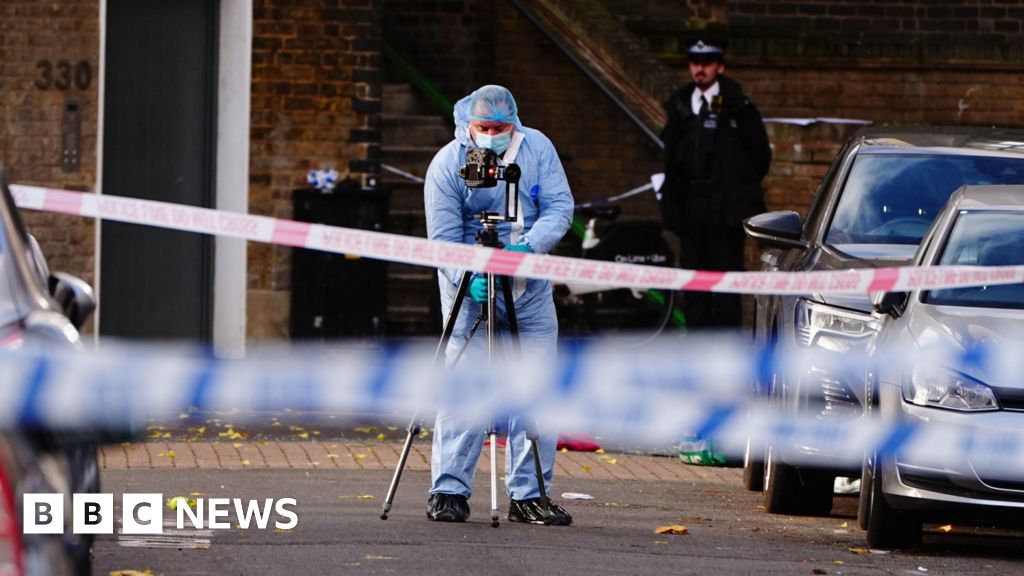Sports
Adam Johnson and the tragedy that changed British hockey

Content warning: This article contains descriptions which some readers may find upsetting.
It was a demonstration of all that is good about hockey in the UK as more than 9,000 orange-clad fans burst into a deafening roar, celebrating a notable victory over their fierce rivals.
The Sheffield Steelers had come from 3-1 down after two periods to dramatically defeat Nottingham Panthers 4-3 in overtime with a goal from captain, and local hero, Robert Dowd at their home arena on the outskirts of the northern English city.
At full time, announcer Dave Simms confirmed the Steelers’ 20th successive win over their opponents from 45 miles down the highway to jubilant scenes.
It was almost as if nothing had changed from the night when tragedy struck the biggest rivalry in the British game and shockwaves reverberated around the wider hockey world. But, of course, everything has.
GO DEEPER
A year after Adam Johnson’s death, why are NHL players resistant to skate-cut protection?
A year ago, on October 28, 2023, at the same venue, former Pittsburgh Penguins forward Adam Johnson, in his first season as a Nottingham Panther, died after being cut in the neck by a skate during a Challenge Cup game against the Steelers.
The lives of those associated with the UK’s two biggest ice hockey teams — it is called ice hockey here because field hockey is the more traditional sport — changed that night, as did those of the supporters who were there. Ramifications persist, too. A man arrested by South Yorkshire Police (SYP) on suspicion of manslaughter has been re-bailed until November 11, 2024.
A year on after one of the best players in the Elite Ice Hockey League, the UK’s top division, lost his life aged 29, The Athletic has spoken to the coach and the captain who led the Panthers’ recovery, a former NHL veteran who essentially replaced Johnson in the team, a Steelers fan who saw the tragedy unfold and an academic and hockey expert on how the sport has changed. Here, they tell their stories.

Johnson playing for the Pittsburgh Penguins on March 29, 2019 (Joe Sargent/NHLI via Getty Images)
Kevin Moore was the assistant coach who became the Panthers’ public face in the aftermath of the incident.
The 36-year-old American, a former college goaltender, is now head coach of Coventry Blaze, an Elite League side based in the Midlands, around 100 miles north of London. Johnson, he said, is never far from his thoughts.
“Very difficult,” is how he described the Panthers’ return to the ice after Johnson’s death. “You go through the year and you have a lot of memories about someone you cared about and who made a really big impact on our group.
“Adam was such a kind, fun and generous person and a lot of the young players on that team looked up to him. He was really good to them and there were reminders everywhere. We had to keep the group really connected because it was incredibly important to make sure they were giving their hearts to each other.
“We all had gone through something together and we could lean on each other that way. It really was step by step. Our jobs, and those of our players, were public and we were publicly performing while grieving, which is an incredibly hard thing to do.
“But the people in Nottingham were awesome. We all saw how they were in the first game back, the memorial against Manchester, and how that whole building felt like a big bear hug around our team. They were so loud and supportive.
“It was reciprocal kindness and, as a group, we really appreciated our fans and the larger hockey world. Hockey is a pretty small community and the support meant so much. It’s something I’ll never forget.”

A tribute to Johnson before the Pittsburgh Penguins game against the Anaheim Ducks October 30, 2023 (Joe Sargent/NHLI via Getty Images)
Veteran Canadian defenceman Mike Caruso was promoted to captain two months after Johnson’s death because of his role in guiding the Panthers through the distress.
“We all struggled quite a bit, I’ll be honest, over the course of the season but we were able to push through, put a product on the ice and finish the season for the Nottingham Panthers and that’s something I’m very proud of,” Caruso, 36, told The Athletic from his home in Guelph, Ontario.
“There were definitely times during that first month when I thought it wouldn’t be possible to get back on the ice. Naturally, especially during the first couple of weeks, a lot of us didn’t see the road back. We didn’t know if we were going to be able to compete the same way and how we would react in certain game situations. There were things that had an ability to trigger you and bring up terrible memories.
“The first few practices were strange but, leaning on each other, we were able to pick up the pace and level of competition to the point where we thought we were ready to participate in games again. The club did an excellent job in handling a really terrible situation as well as possible. They gave us back a path towards playing.
“And the support was an amazing thing to see. Even at all our away games, driving eight hours up to Scotland, there would be hundreds of Nottingham fans who had turned up to support us in the dead of winter. It was a level of support that none of us had ever seen before and it was a big reason why we were able to carry on.”

Simon Despres playing for the Anaheim Ducks against the New Jersey Devils on March 29, 2015 (Christopher Pasatieri/Getty Images)
The British game received a pick-me-up following Johnson’s death by the arrival of Simon Despres, a defenceman with 193 NHL appearances — 144 of them with the Penguins — to the Elite League.
“Nottingham were talking to me about coming before the incident and then that happened and I really wasn’t sure it was a situation I wanted to get myself into,” said the 33-year-old, whose future in the sport was once in doubt when he was sidelined for around a year after suffering serious concussion injuries. He was subsequently bought out of his contract by the Anaheim Ducks in 2017.
“I’ve been through some bad situations in my life so I thought maybe I could help this group, not only on the ice but also off it. Just listening, being there, and being a big brother to these guys.
“You could feel the trauma in the room. I just tried to bring the fun back to playing hockey and lighten the mood a little bit. I just wanted to help people go back out there again and try to enjoy it.
“Everywhere we looked there were reminders of what happened and it was on our minds all the time. There were dark moments for sure, but the bond between the players was extraordinary. When guys go through a tragedy like that, it really brings them closer.”
Hockey in Britain is family oriented. When The Athletic watched the Steelers host the Panthers earlier this month, a couple nearby were with their one-month-old baby, already attending his fourth game.
Season-ticket holder Dave Wheat has supported the Steelers ever since he decided in the 1990s that it was a nicer environment for his young son than football.
But nothing prepared Wheat for what he saw on that Saturday night late last October. “I haven’t thought about this for a long time and I didn’t talk about it after because it was so horrible,” Wheat told The Athletic.

Steelers supporter Dave Wheat attending an Elite League game against the Nottingham Panthers this month (Paul Newman/The Athletic)
“Just horrendous. My wife (Suzanne) usually comes with me to watch the Steelers but she had a migraine that day so she didn’t go to the game, which was a blessing. I’m not sure she’d have gone back if she’d been there.
“People in the crowd were just screaming when it happened and a woman behind me screamed again when they started doing CPR. She was in tears. Someone in front of me collapsed and several people were being sick in the crowd. It was really traumatic to see, not just what was happening on the ice but what was going on in the crowd.
“I went to the toilet block behind us, mainly to get away from the ice, and people had taken kids in there. There were a lot of people there, but it was completely silent. It was just an eerie atmosphere.
“I didn’t look at anything online afterwards. I didn’t want to watch any of the videos of the accident going around. I did have a quick look before you called me, just a five or six-second video, and all I can see is a tragic accident.
“A lot of people didn’t come to the games afterwards. My nephew, his wife and their kids were there and I think they’ve only been to one game since. And that was only recently.
“Maybe this season people have started to come back a little more and the atmosphere is getting back to normal, but you have to remember there were so many young kids in the crowd — there always are at a British hockey game — and it was incredibly hard for everyone who was there and saw it.”
Danger, of course, is inherent in hockey but steps were taken after Johnson’s death to make it safer. From January 1 this year, neck guards were made mandatory in the Elite League and, as of this season, the rulebook of the International Ice Hockey Federation (IIHF), the world governing body, said neck guards were mandatory in all IIHF-affiliated leagues.
In the American Hockey League (AHL), the tier below the NHL, players, referees and linespersons are required to wear neck protection, while in August, USA Hockey, the country’s governing body, made it mandatory for under-18s to wear neck guards. The NHL, however, does not mandate players to wear neck guards.
NHL deputy commissioner Bill Daly said last month that he hoped that there would come a time where “on some basis” neck guards would be mandatory in the league. The NHL would need the support of their Players’ Association before they agreed to their mandatory use.
Dr. Victoria Silverwood is an academic based in South Wales whose research into violence in professional hockey was featured in the acclaimed film Ice Guardians. She is a fan of the Cardiff Devils, a Welsh team in the Elite League, and has kept a close eye on how the sport reacted to Johnson’s death.
“The game has changed, absolutely, particularly in Britain and the introduction of compulsory neck guards is something that happened more quickly than I expected,” Silverwood told The Athletic.
“It was really positive to see the AHL introduce them, too, and that surprised me. I would expect them to come into the NHL now. That has to be the next step.
“Players will now grow up thinking wearing neck protection is just what you do and that’s really positive. The aim is to do all we can to make it safer for the players, whether they tolerate it or not. It has to be a decision that’s taken out of their hands.”

Tributes at the Adam Johnson Memorial Game between Nottingham Panthers and Manchester Storm on November 18, 2023 (Jan Kruger/Getty Images)
The sport’s recovery has been aided by a togetherness epitomized by volunteers like Erin Rose, a sports therapist with the Romford Raiders of the National Ice Hockey League (NIHL), British hockey’s second tier. She set up “Adam’s Angels” to raise money to provide catastrophic bleed kits to every club in the country.
The united front demonstrated by the sport was evident this weekend when Johnson was remembered with a 47-second applause before the start of each Elite League game. The Panthers will honor Jonson by retiring his No 47 shirt ahead of a game against Fife Flyers in December.
Meanwhile, the ambulances and paramedics that used to be present at most — but not all — Elite League games are now mandatory and a visual presence at every game.
But has the sport’s reputation been damaged, particularly in the UK?
The implications of any possible criminal case would be immense. Wheat is concerned that players from North America and Europe’s more established leagues would hesitate to come to Britain if they feared any actions on the ice could lead to prosecution.
Such fears are strongly refuted by Caruso, who made two NHL appearances for Florida Panthers and has a wealth of AHL and European experience. “Absolutely not,” said the former Nottingham captain when asked if there would be an adverse reaction to British hockey.
“There are no negative repercussions for the British game and I think the reputation of British hockey is growing. It’s getting better every year and people are starting to take notice that playing in the UK is a great option.
“If anything it’s been a bit of a wake-up call for the wider hockey community. When you look at some of the near misses that have happened in North America and at other leagues in Europe, I think you realize it’s kind of a miracle that something like this hasn’t happened before now. I’ve seen a lot of close calls in my career.
“I hope everybody adopts the new neck protective equipment. It seems like a no brainer to me.
“As for the game going forward, I’m sure it will carry on, but I hope this is something people take with them and really consider. It’s a dangerous game and things can happen but, at the end of the day, we all love the game and want to do anything we can to enable it to continue. But in as safe a manner as possible.”

Caruso (No 62) playing for the Florida Panthers in September 2013 (Joel Auerbach/Getty Images)
Despres, now playing in Scotland for Glasgow Clan, concurred. “I really don’t think the tragedy reflects badly on the British game,” he said. “It could have happened anywhere and I don’t think it has had any impact on the reputation of British ice hockey whatsoever.”
Everyone The Athletic spoke to identified Moore as the most important figure in helping Nottingham and the sport in the UK heal. So, has the game changed for him?
“It’s a good question,” Moore said. “No one’s asked me that. It’s still a sport I love and it’s a sport that teaches us so much about life and how to persevere through things.
“Despite experiencing this tragedy and thinking about Adam every day, the sport itself, and what makes it great, hasn’t changed for me and won’t change because all the things the players did to inspire and be resilient were there before.
“The only thing that has changed is that I think about Adam every day. Before every game I say a little prayer for him and his family. The game itself is a beautiful game and is the best game to teach people about life and how to treat others.
“I might have said this at his funeral, but if young players could see how Adam reacted when his team-mates scored goals and how happy he was, the type of human he was… If every player aspires to be like Adam Johnson, then the game will continue to be in a good place.”

GO DEEPER
Adam Johnson manslaughter case: Explaining the legal delays
(Top photos: Getty Images; design by Eamonn Dalton)










